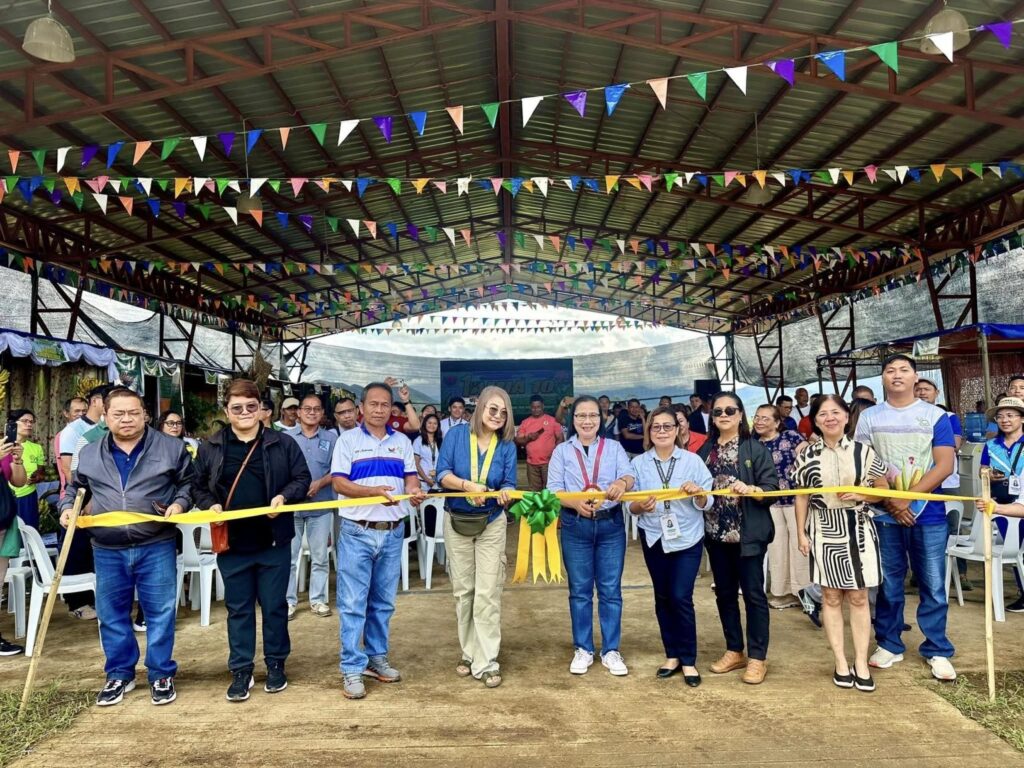Bukidnon teacher Junmerth Jorta among the top 50 finalists of 2025 Global Teacher Prize

MANILA, Philippines (Feb 09, 2025, 08:08 AM PHT) — Junmerth Jorta, a public school teacher in Bukidnon, has earned a spot among the Top 50 finalists for the 2025 GEMS Education Global Teacher Prize Jorta, who also received the Metrobank Foundation Outstanding Filipino Teacher Award in 2022, was celebrated for his dedication that began in […]
Coffee stakeholders scale up NorMin’s coffee roadmap, to brand Bukidnon as Arabica capital

CAGAYAN DE ORO CITY – The Department of Agriculture – Regional Field Office 10 (DA-10), led by Regional Executive Director Jose Apollo Y. Pacamalan, recently convened coffee stakeholders for a public-private consultation to consolidate plans, programs, and funding for scaling up Northern Mindanao’s coffee roadmap The consultation was attended by representatives from the Department of […]
Army installs new 4ID commander, pledges peacebuilding efforts

CAGAYAN DE ORO CITY (January 28, 2025, 7:21 pm) – The Philippine Army on Tuesday installed Brig. Gen. Michele Anayron Jr. as the new commander of the 4th Infantry Division (4ID), overseeing parts of Northern Mindanao and the Caraga region In his inaugural speech, Anayron emphasized his commitment to advancing peace and development in collaboration […]
Agri-10 eyes strengthened beef cattle marketing innovations among NorMin industry stakeholders

MANOLO FORTICH, Bukidnon — As demand for beef cattle production and marketing grows, the Department of Agriculture – Northern Mindanao (DA-10), led by Regional Executive Director Jose Apollo Y. Pacamalan, hosted a beef cattle marketing innovations seminar and workshop on January 24 to foster networking and collaboration among stakeholders Following a memorandum from the DA […]
Bukidnon aims to be PH’s Arabica Capital with coffee roadmap

MALAYBALAY CITY (August 28, 2024/PIA) — “Bukidnon’s coffee beans, renowned worldwide for their quality, have elevated the province as a global coffee destination. We have world-class coffee beans right here in our backyard. It’s time to unleash their full potential,” declared Governor Rogelio Neil P. Roque Despite this international acclaim, the governor emphasized that the […]
Awareness seminar on food safety, regulations held

MALAYBALAY CITY, Bukidnon — The Department of Agriculture – Regional Field Office 10 (DA-10), through its Agribusiness and Marketing Assistance Division (AMAD), staged an awareness seminar on food safety and regulations on August 15 at the Northern Mindanao Agricultural Crops and Livestock Research Complex (NMACLRC), in this city During this time, the agency apprised almost […]
Agri NorMin lauds AMIA villages in first congress

Alicia G. Ilaga (4thfrom left), Department of Agriculture national director for Climate Resilient Agriculture Office (CRAO) and Adaptation and Mitigation Initiative in Agriculture (AMIA), leads the ribbon cutting ceremony on the first day of the 2-day 1st AMIA Congress held at Northern Mindanao Agricultural Crops and Livestock Research Complex (NMACLRC) held in Brgy. Dalwangan, Malaybalay City, Bukidnon on July 11, 2024. (Photo Release/AMIA)
RDC-10 economic dev’t committee approves DA-10 2025 proposed budget

CAGAYAN DE ORO CITY (March 03, 2024/PIA) — The Economic Development Committee of the Regional Development Council (RDC)-10 approved the P20.32 billion proposed budget of the Department of Agriculture (DA)-10 for the year 2025 on February 20 DA-10 Regional Executive Director Carlene C. Collado said 24 percent of the said budget is proposed under Tier […]
P11.2M Dairy processing plant gitukod sa Bukidnon

Isa ka Dairy processing plant nga adunay kinatibuk-ang balor nga PhP11,224,221.10 ang gitukod sa Bukidnon Gipahigayon ang Product Launching ug Turn-over sa Dairy Processing Plant (DPP) sa Brgy. Dalwangan, Malaybalay City niadtong Nobyembre 30, 2023. Ang proyekto gihimo alang sa Dalwangan Malaybalay United Dairy Agrarian Reform Cooperative (DAMAUDARC). Mitambong sa kalihokan ang gikan sa National […]
Students from 23 schools in Bukidnon receive bags, school supplies

MALAYBALAY CITY, Bukidnon-Selected students from 23 schools in the landlocked province of Bukidnon were recently given backpacks and school supplies The 403rd Brigade in a press release said that the program was spearheaded by the Office of the Vice President (OVP) Davao Satellite Office through its special project called PagbaBAGo program.Peoples Organizations (POs) and schoolchildren […]
